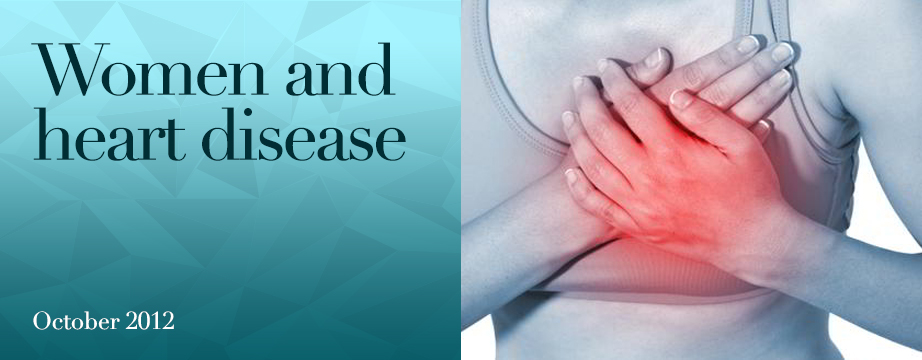
| Heart disease is the leading single cause of death in Singapore, accounting for 23 to 24 percent of all deaths through the years 2006 to 2011. This rate has remained stable throughout this period. |
| Ischemic heart disease remains the number one form of heart disease among women. Other types of heart disease in women are valvular heart disease, hypertensive heart disease, congenital defects, cardiomyopathy, arrhythmias due to various causes and a specific type of cardiomyopathy associated with pregnancy (peripartum cardiomyopathy). These causes are not different from men, with the exception of peripartum cardiomyopathy. |
| Ischemic heart disease in women is uncommon before menopause, but the incidence approaches that of men after menopause. I published a paper using data from the Singapore Myocardial Infarction Registry from 1988 to 1997 showing that the incidence was four times higher in men for the age group 20 to 69 years but only 1.7 times higher in men when looking at the age group more than 69 years. |
| There are some differences between men and women for ischemic heart disease. |
| Firstly, ischemic heart disease tends to be under-diagnosed in women for various reasons. These include under-reporting of symptoms by women, tendency of physicians to dismiss symptoms in women and thus reluctance to order diagnostic tests, and reduced specificity of common screening tests like ECG stress testing in women. |
| Secondly, the prognosis is different. When ischemic heart disease occurs in pre menopausal women, they tend to have a worse outcome than men. |
| Thirdly, treatment results may differ. Women are smaller in size and have smaller blood vessels. They may not have as good results with usual treatments like surgery or stenting. Nonetheless, all tests and treatments should be offered equally to all alike, while recognizing the limitations of each. |
| There are other types of heart disease with specific gender differences. |
| For example, Brugada syndrome is more common in men whereas Congenital Long QT Syndrome, though equally prevalent in both sexes, tends to affect females more severely. |
| Peripartum Cardiomyopathy is a rare but serious and potentially fatal disease of the heart muscle that is associated with pregnancy. It may affect women in any stage of pregnancy, even immediately after delivery. The cause is unknown. One third recover completely to normal, one third remain the same and one third deteriorate and reach end stage heart failure and may require heart transplantation. |
| Cardiac arrhythmias can affect males and females alike. Treatment, which includes catheter ablation have similar results in both sexes. |
| Women of today have to fulfill multiple roles. These demands impose physical, emotional and psychological stresses on women and have adverse effects on their heart health. Many have placed these concerns over and above their own needs and neglected their diet, exercise and need for personal time and relaxation. All these affect cardiovascular risk factors such as hypertension, diabetes, cholesterol, obesity and smoking (including second hand smoke). |
| Women need to take charge of their own health (and their families’ health) |
|
 DR RUTH KAM
DR RUTH KAMCardiologist
MBBS (Singapore)
MRCP (Int Med) (UK)
M Med (Int Med) (Singapore),
FAMS (Cardiology), FRCP (Edin)
Ruth Kam Heart and Arrhythmia Clinic
1 Farrer Park Station Road, #07-11 Connexion
Farrer Park Medical Centre, Singapore 217562
Tel: 6443 0468
www.arrhythmia.com.sg
1 Farrer Park Station Road, #07-11 Connexion
Farrer Park Medical Centre, Singapore 217562
Tel: 6443 0468
www.arrhythmia.com.sg



